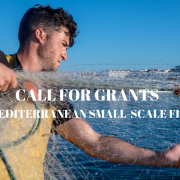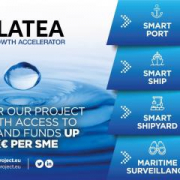Circular bioeconomy start-up villages | Deadline: 28 February 2024
Deadline: 28 February 2024
Budget: €2.500.000
Countries: Algeria,France, Italy, Malta, Mauritania, Morocco, Portugal, Spain, Tunisia
More information: funding and tender opportunities portal by the European Commission
Scope
Applicants should demonstrate how they will provide innovative circular, sustainable and socially fair bioeconomy solutions for:
- food systems transformation;
- bio-based sectors, covering biological waste/residues and bio-based materials and products;
- employing digital technologies and approaches.
Applicants should address only one of the thematic areas above, and clearly indicate it in their proposal.
Proposals are expected to contribute to the creation and support of a thematic network of start-up villages based on bioeconomy concepts, including all of the following activities:
Provide assistance and advisory support for the development and linking of startup villages and raise awareness of the rural innovators on sustainable and circular systemic bioeconomy solutions.
Develop the Start Up Village Forum initiative through a community of practice to support active engagement of all relevant actors (local and regional authorities, entrepreneurs, investors, rural cooperatives, rural communities and others) in the start-up villages and foster knowledge exchange and mutual learning between them, as well as share research, data and analytical findings.
Develop a list of case studies of local and regional start-up villages focusing on bioeconomy including sustainable food systems and bio-based solutions, identifying and presenting the respective strengths, weaknesses, and opportunities.
These case studies could be used for replication and dissemination across Europe in the context of the Startup Village Forum. Proposals should involve at least three start-up villages from three different Member States / Associated Countries, ensuring geographical coverage of different regions.
Identify the challenges and development pathways for developing and scaling up of start-ups and small and medium-sized enterprises (SMEs) for a sustainable bioeconomy, including businesses linked to agriculture, food, forestry, bio-based innovation and non-agricultural activities in rural areas related to the community-led local development strategies.
Address the challenges of Europe’s fragmented start-up scene and of entrepreneurship education and capacity building.
Assess possible options and create guidelines and recommendations for policy makers, investors and rural innovators summarizing, sharing and presenting existing best practices and innovations to enable replication of successful cases across Europe.
The proposals should build on the knowledge and tools already generated by the BioeconomyVentures[2] and Pilots4U[3] projects developed under Horizon 2020, as well as seek complementarities with related actions and existing[4] and upcoming[5] relevant projects on bioeconomy governance and ensure inclusiveness and engagement of all actors. It is also relevant to cooperate and establish links with the Circular Bio-based Europe (CBE) JU, and relevant EIT KICs.
Seek synergies and complement the knowledge and cooperation activities of the Startup Village Forum. Cooperate with “Rural networks” (soon to become the CAP networks) including the European innovation partnership on agriculture productivity and sustainability (EIP-AGRI) and the European Network for Rural Development (ENRD), and Horizon Europe Partnership Sustainable Food Systems.
Proposals should explore all available financing instruments on a European level, including relevant regional instruments (Cohesion Fund, CAP, ESF and others). Proposals should also describe how they plan to complement the ongoing activities of bodies such as the European Innovation Council, the Circular Bioeconomy Investment Platform, and the Enterprise Europe Network and European Institute of Technology (EIT) initiatives.
Social innovation is relevant for this topic as it contributes to strengthened rural innovation ecosystems and to find solutions for rural communities when the solution is at the socio-technical interface and requires social and behavioural change, new social practices, social ownership or market uptake. Proposal should contribute to improve the quality of life and long-term socio-economic prospects of rural and coastal communities, including women (especially supporting women-led SMEs and start-ups), youth and the most vulnerable groups like indigenous people or minorities and refugees.
This topic requires the effective contribution of SSH disciplines.




